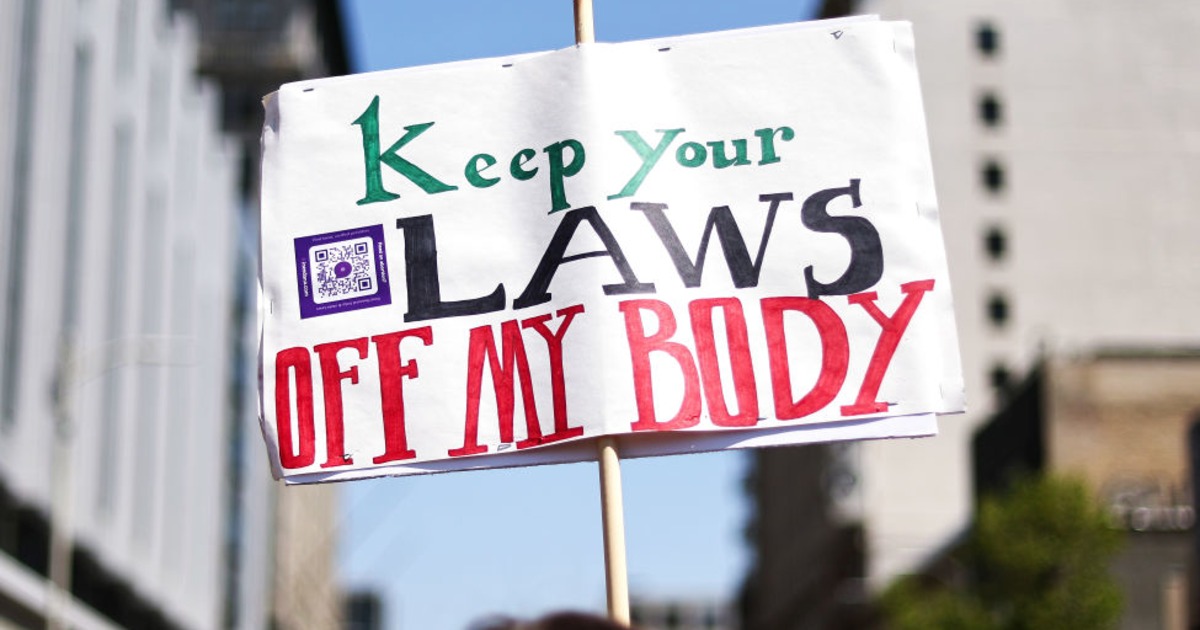More and more states are seeking to provide fetuses and embryos with legal protections through laws that would recognize them as persons. These laws, known as personhood laws either personhood billsare in the middle of many of the state disputes over reproductive rights in the United States, which impose near-total bans on abortion and make the procedure a crime.
Reproductive health experts have expressed concern that these laws could open the door for women to be prosecuted for miscarriages or undergoing medical procedures necessary to save their lives.
Looking ahead to the November elections, we explain some key points about these legislations that Planned Parenthood translates as “personhood.”
A conservative effort with decades of experience
The idea of recognizing a fetus as a person dates back to the 1960s, when Catholic groups opposed the relaxation of abortion laws, as explained in this Vox piece. These efforts go beyond prohibiting the termination of a pregnancy since, based on the 14th Amendment, They aim to guarantee a fetus the same legal protections that any person enjoys. in the country.
This notion was on the fringes of anti-abortion movements for decades. But with the overturning of Roe v. Wade in 2022, states found greater leeway to restrict abortion. Since that ruling by the Supreme Court, with a conservative majority, 14 states have made abortion illegal, according to data from the Center for Reproductive Rights.
“Fetal personhood language doesn't just appear in bans or wrongful death laws like Alabama's,” Planned Parenthood says. “The true effect of personhood language is clear: to deny people the freedom to control their own bodies and lives.”
Minorities in the United States, especially of Latino and black origin, are already at a disadvantage when it comes to care and access to health services, according to data from the National Latina Institute for Reproductive Justice, so another concern around bills that seek to recognize a fetus as a person is to further stigmatize reproductive care.
“Our community is already the least likely to receive this type of care because it does not even have access to other types of services,” Lupe M. Rodríguez, director of the National Latina Institute for Reproductive Justice, told Noticias Telemundo, commenting on the impact of the Alabama Supreme Court's ruling in February, which determined that frozen embryos should be considered children.
What states are considering this type of legislation?
- Currently, 13 states have bills seeking to recognize a fetus as a person advancing in their respective legislatures, according to a count by the United States Center for Reproductive Rights: Alaska, Colorado, Utah, Kansas, Oklahoma, Iowa, Missouri, Illinois, Indiana , Florida, Georgia, South Carolina and Massachusetts.
- Four states already have laws that seek to recognize a fetus or embryo as a person: Georgia, Alabama, Missouri and Arizona. In the latter state, the legislation was challenged and is blocked in court. On April 9, the Arizona Supreme Court revived a 19th century law that prohibits almost all abortions.
- The Alabama Supreme Court decision is the first known case in which a U.S. court says frozen embryos are human beings.
- Iowa and Colorado have also introduced bills that would define a person beginning at fertilization, which could have repercussions on state decisions on homicide, wrongful death and assault legislation, the Center for Reproductive Rights reported to Noticias Telemundo.
- Kansas has a bill that would prohibit the “unlawful destruction of a fertilized embryo,” it was introduced last year and is still in effect, although it has not moved forward.
On the ballots
This is a crucial year for abortion rights in the United States: at least a dozen states will take constitutional amendments to the polls in November that could protect or restrict the voluntary termination of a pregnancy.
Since the overturning of Roe v. Wade, all ballot measures that have sought to preserve or expand access to abortion have been successful, while those that have tried to restrict access to abortion have failed, even in conservative states, reflecting a stark contrast between state courts and what voters want, according to information from the Washington Post
Democrats see recent abortion rulings in state courts as an opportunity to mobilize Latino voters in key states and in contested House districts. Its message is focused on personal freedoms and access to reproductive health care.
A few days ago, the Arizona Supreme Court revived a 19th century law that bans almost all abortions in that state. The move came a week after Florida's highest court allowed a six-week abortion ban to go into effect. And it adds to the Texas state law that prohibits the termination of a pregnancy after six weeks of gestation.


